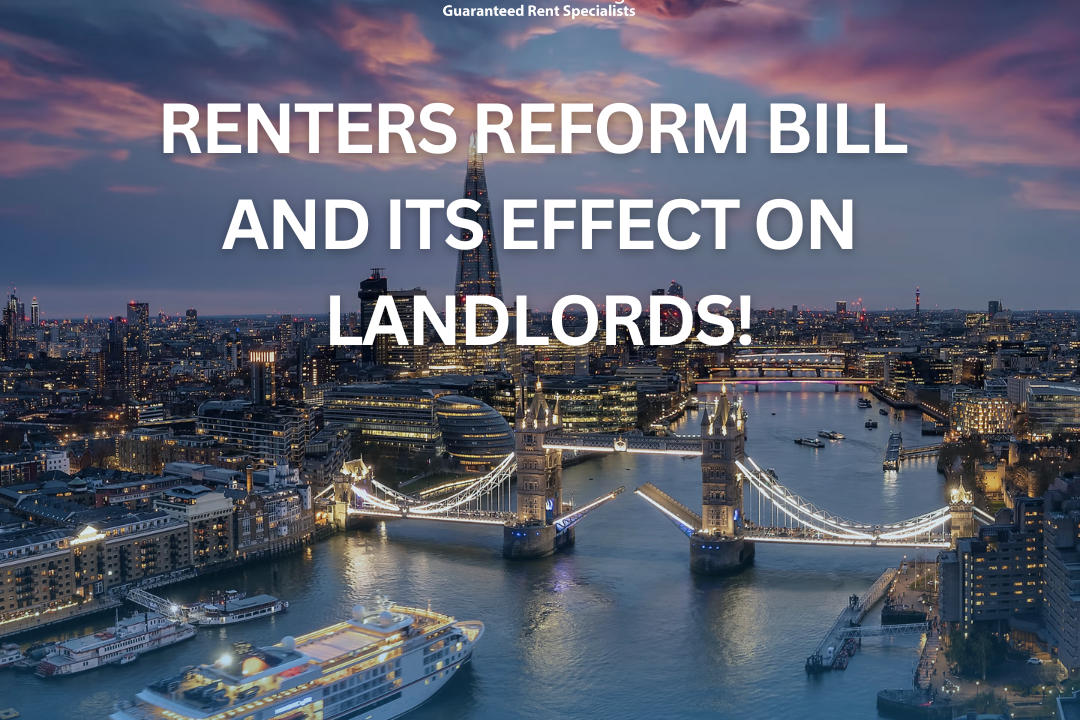
The Renters Reform Bill is set to bring about major changes to the renting sector in the United Kingdom. As a landlord, staying updated on these changes is essential, as they aim to reshape the private rental sector by improving tenant rights and adjusting landlord responsibilities. Let’s go over the essential information regarding this law and how it can affect you as a landlord.
What is the Renters Reform Bill?
The Renters Reform Bill represents a major shift in the rental sector, aiming to create a more balanced and fair environment for both tenants and landlords. It proposes a series of updates focused on enhancing tenant protections, introducing new standards for property maintenance, and simplifying the dispute resolution process. If you’re a landlord, understanding these changes can help you stay compliant and even benefit from the new structure this bill seeks to establish.

Key Changes You Should Know About
The Renters Reform Bill outlines several key changes for landlords, designed to increase transparency and fairness in the renting process. Some of the key changes include:
Elimination of “No-Fault” evictions under Section 21
Landlords will no longer be permitted to request that renters leave a house without a valid reason under the new regulations. For landlords, this means a more structured approach to repossession and potentially longer notice periods, but it also provides clarity and protection for tenants, which can lead to more stable tenancy relationships.
- Enhanced Grounds for Repossession
To balance the removal of Section 21, the Renters Reform Bill strengthens the grounds upon which landlords can regain possession of their properties. For example, if a landlord wishes to move into the property or if a tenant has breached the tenancy agreement, these reasons can now be grounds for repossession. This update ensures that while tenant rights are upheld, landlords retain fair avenues for reclaiming their properties when necessary.

New Responsibilities for Landlords
As part of the reform, landlords will also need to adapt to some new obligations, particularly regarding property conditions and dispute resolution:
- Compliance with the Decent Homes Standard
Landlords will be required to meet a new ‘Decent Homes Standard,’ which ensures rental properties are safe, well-maintained, and habitable. This standard may require regular property inspections and updates, reinforcing the importance of keeping rental properties in excellent condition. Compliance with these guidelines can benefit landlords by reducing complaints and enhancing tenant satisfaction. - Introduction of an Ombudsman Service
A new Ombudsman service will be available to assist with landlord-tenant disputes. This means that, rather than resorting to lengthy or costly legal processes, landlords and tenants can turn to the Ombudsman for fair, unbiased dispute resolution. This service aims to simplify conflict resolution, ultimately saving both parties time and money.
Why These Changes Could Benefit Landlords
While these reforms might appear challenging at first glance, they come with potential advantages for landlords. Meeting the Decent Homes Standard and approaching disputes with a fair mindset can enhance tenant satisfaction, leading to longer tenancy durations and potentially reducing turnover. Tenants who feel secure and valued are more likely to stay, fostering stable, mutually beneficial rental relationships.
Conclusion
The Renters Reform Bill is set to bring transformative changes to the UK rental sector, aiming to create a fairer, more balanced relationship between landlords and tenants. By understanding and preparing for these updates—such as the removal of no-fault evictions, adherence to the Decent Homes Standard, and the introduction of an Ombudsman—landlords can navigate these changes smoothly. Staying informed and proactive will help you maintain compliance, foster positive tenant relationships, and potentially reduce turnover. Embracing these changes can ultimately benefit landlords and tenants alike, contributing to a healthier, more sustainable rental market.

